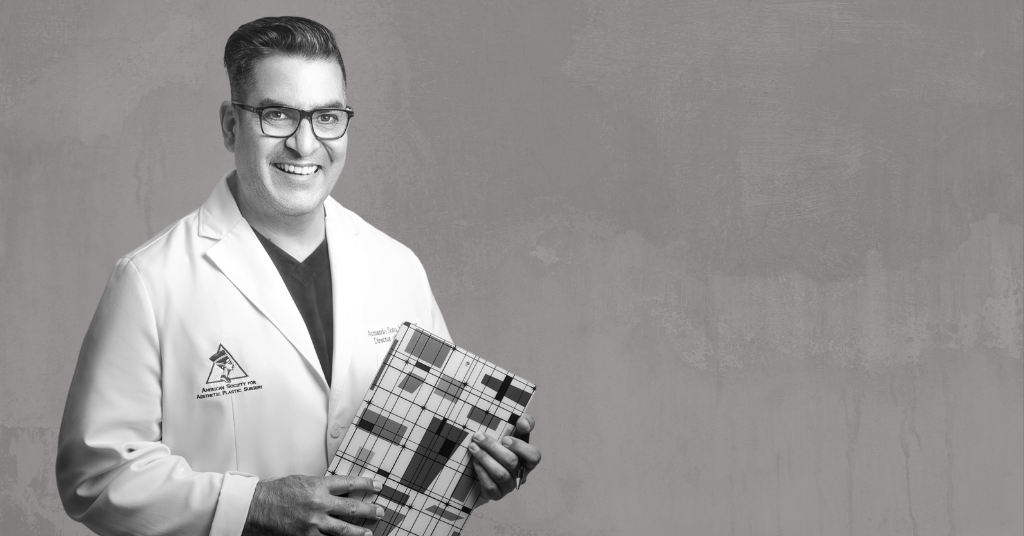It’s infrequent to hear the word healthcare and not have “patient satisfaction” trailing shortly behind. With the emergence of small computers at our fingertips (literally), reviews, “likes”, and “stars” have become the clearest indicator of how American consumers choose to spend their money, and their time. Satisfaction in every aspect of our lives is an important factor to individuals and sharing that satisfaction has become equally important. It’s not uncommon for a consumer to change their dinner plans based on reviews from other consumers, and healthcare is no different.
Patients begin their cosmetic and aesthetic consultation way before they ever step in the door of a plastic surgery office. It begins the moment they search, “plastic surgeon near me.” They are instantly flooded with a number of M.D.’s, D.O.’S, N.P.’s and P.A.’s all of which mean nothing to the patient, but then…. there are the reviews. Sentences full of patient after patient and the satisfaction they have already received, and the happiness they now feel.
The healthcare industry began serving up patient satisfaction ratings in 1985 when Press Ganey was created by professors Irwin Press, PhD and a medical anthropologist named Rod Ganey, PhD (Siegrist, 2013). This essentially created a new market by identifying and reimbursing healthcare facilities on the basis of patient reviews and ratings. Patient satisfaction surveys allow healthcare facilities to identify where they can improve, and gives insight to what the patient sees, hears, and feels (Siegrist, 2013). In private medical practices, patient satisfaction is just as, if not more important, than in larger healthcare facilities. In private practice, and especially in plastic and cosmetic surgery, word of mouth/reviews serve as a guide to with whom patients will go forward with a consultation, and whom they choose to look over. After the patient initiates contact with the office of their choice, a consultation is set in motion. During the consultation process, the patient beings to see, hear, and feel all that the provider, and office has to offer them. Much like the patient satisfaction surveys, patients choose their provider based on the satisfaction they feel when they leave the office doors.
Plastic surgery and aesthetic medicine is about making a patient feel good about themselves, giving them confidence, and giving them the ability to take on life with a new sense of psychological happiness. Happiness, in the form of improved aesthetic appearance, comes from a patients’ ability to feel an improved confidence with an aesthetic treatment that they have received. A 2013 study by Margraf, Meyer, and Lavallee hypothesized that individuals receiving plastic surgery do so with the intent of boosting their social and psychological well-being. The study revealed that happiness in the form of self-reported psychological change including quality of life, social phobia, anxiety, satisfaction, and mental and physical health had a positive relationship with aesthetic and cosmetic procedures (Margraf, Meyer, & Lavallee, 2013). As a provider, aiming to make patients “happy” is something we hope for, but can never guarantee.
So how does “patient satisfaction” and “happiness” work in cosmetic surgery? With three simple rules. Always communicate with your provider and take your time to really identify why you are choosing to go forward with an aesthetic or cosmetic procedure. Secondly, have realistic goals. Trying to achieve an unachievable outcome will never end with a satisfied patient, ever. And thirdly, take your time choosing a provider based on whom you trust, and choose one who is always looking out for your safety. Making these rules known to your provider sets the tone of the consultation, and will improve therelationship that you will have with your plastic surgeon or aesthetic provider. References
Seigrist, R.B., (2013). Patient satisfaction: history, myths, and misperceptions. American Medical Association: Journal of Ethics 15(11), 982-987. doi: 10.1001/virtualmentor.2013.15.11.mhst1- Marfraf, J., Meyer, A.H., Lavallee, K.L. (2013). Well-being from the knife? Psychological effects of aesthetic surgery. https://doi.org/10.1177/2167702612471660

Leave a Reply